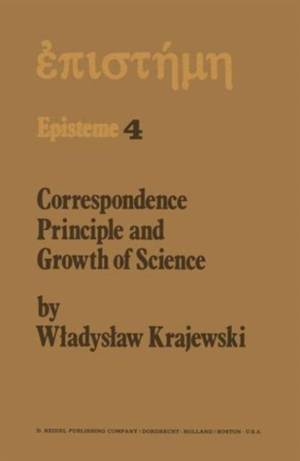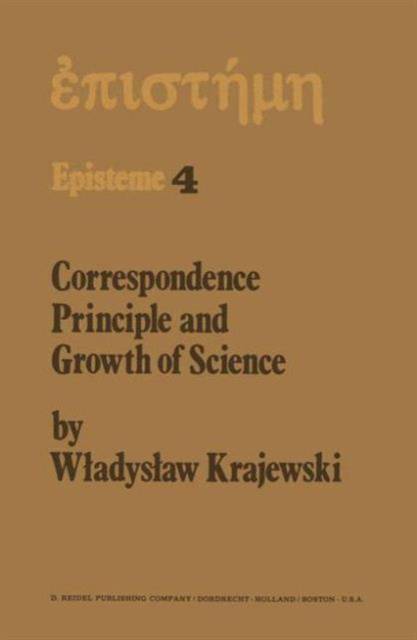
- Afhalen na 1 uur in een winkel met voorraad
- Gratis thuislevering in België vanaf € 30
- Ruim aanbod met 7 miljoen producten
- Afhalen na 1 uur in een winkel met voorraad
- Gratis thuislevering in België vanaf € 30
- Ruim aanbod met 7 miljoen producten
Zoeken
€ 103,45
+ 206 punten
Uitvoering
Omschrijving
This book is devoted to the problems of the growth of science. These prob- lems, neglected for a long time by the philosophers of science, have become in the 60's and 70's a subject of vivid discussion. There are philosophers who stress only the dependence of science upon various sociological, psycho- logical and other factors and deny any internal laws of the development of knowledge, like approaching the truth. The majority rejects such nihilism and searches for the laws of the growth of science. However, they often overlook the role of the Correspondence Principle which connects the suc- cessive scientific theories. On the other hand, some authors, while stressing the role of this principle, overlook logical difficulties connected with it, e. g. the problem of the incompatibility of successive theories, of the falsity of some of their assumptions, etc. I believe the Correspondence Principle to be a basic principle of the pro- gress of contemporary physics and, probably, of every advanced science. How- ever, this principle must be properly interpreted and the above-mentioned logical difficulties must be solved. Their solution requires, as it seems, revealing the idealizational nature of the basic laws of science, in any case of the quantitative laws of advanced sciences. This point has been recently emphasized by some Polish philosophers, especially in Poznan.
Specificaties
Betrokkenen
- Auteur(s):
- Uitgeverij:
Inhoud
- Aantal bladzijden:
- 138
- Taal:
- Engels
- Reeks:
- Reeksnummer:
- nr. 4
Eigenschappen
- Productcode (EAN):
- 9789027707703
- Verschijningsdatum:
- 31/03/1977
- Uitvoering:
- Hardcover
- Formaat:
- Genaaid
- Gewicht:
- 369 g

Alleen bij Standaard Boekhandel
+ 206 punten op je klantenkaart van Standaard Boekhandel
Beoordelingen
We publiceren alleen reviews die voldoen aan de voorwaarden voor reviews. Bekijk onze voorwaarden voor reviews.








